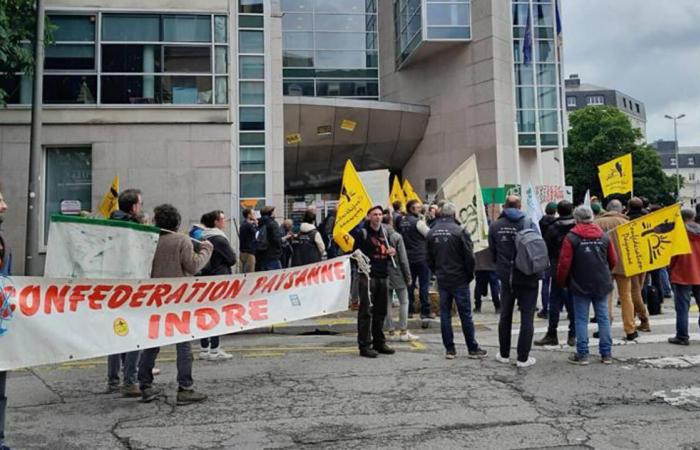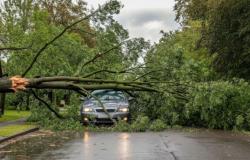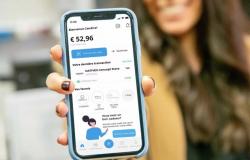Once again mobilized on the ground against the EU-Mercosur free trade agreement or to guarantee a decent income for farmers, the three major French farmers' unions, the FNSEA, the Rural Coordination (CR) and the Peasant Confederation are engaging in a fierce competition ahead of their January professional elections. The FNSEA organizes symbolic actions throughout France, while the CR favors high profile actions, such as the blockade of the port of Bordeaux.
The FNSEA largely in the majority
The number of FNSEA members, its hegemony within the chambers of agriculture and a form of “co-management” with the executive make it the most influential union. He has also been the government's preferred interlocutor for decades.
The movement, founded in 1946, was then the only trade union organization and brought together almost all farmers. The objective is to revive production in starving post-war France, with the help of the first American tractors and the chemical revolution.
That year, “gathered in congress, they all take the “Oath of Peasant Unity”, in a form of corporatism mixed with social Christianity”underlines Bertrand Hervieu, sociologist of rural issues.
The National Federation of Farmers' Unions now has 212,000 members and the support of 31 specialized associations. It is allied with the Young Farmers (JA), which has brought together farmers under 38 years of age since 1957.
The FNSEA-JA alliance won more than 55% of the votes in the 2019 professional elections. It manages 97 chambers of agriculture, almost all, due to the voting method which offers a bonus to the list that comes first. .
The only agricultural union also considered as an employers' organization, the FNSEA is led by the large cereal producer and chairman of the board of directors of the oil giant Avril, Arnaud Rousseau.
The union is demanding “means of production” (access to water, moratorium on pesticides), administrative simplification and fairer competition. For “open agriculture”, while France exports its wheat and its cognac, the FNSEA has taken a position against the EU-Mercosur agreement, which it considers too unbalanced.
Rural Coordination, the permanent punch
Second agricultural union with 21.5% of the votes, the Rural Coordination, which officially became a union in 1995, was born at the end of 1991 from a split from the FNSEA. She accuses him of “double game” on the Common Agricultural Policy, seen as the armed arm of an unfortunate globalization that only plays into the hands of the big cereal growers of Beauce.
Rural Coordination, the third French agricultural union, has between 100 and 1,000 supporters in each of its 100 member departments.
© (Photo NR)
Both liberal and conservative, led by organic dairy farmer Véronique Le Floc'h, the CR defends a « exception agriculturelle » French in a country of traditions, with a majority of small farmers whom she considers crushed by free trade.
It is the majority in Vienne, Haute-Vienne and, above all, in its stronghold of Lot-et-Garonne. The emblematic president of the Chamber of Agriculture, Serge Bousquet-Cassagne, claims “18 trials in thirty years”, the organization of multiple punch actions and his proximity to the extreme right, like several union executives.
The CR, whose yellow hats have gained visibility since last winter, hopes to delight in January “15 to 20 rooms” to the FNSEA, which they accuse of favoring the interests of agro-industry. The union is campaigning for water storage, wants to see the French Biodiversity Office disappear and further reduce farmers' costs. To make themselves heard, its activists, particularly in the South-West, said they were ready to “cause chaos”.
The Peasant Confederation, another agriculture
Third agricultural union with 20% of the votes, the Confédération paysanne (CP) is chronologically the first representative movement to challenge the hegemony of the FNSEA.
Supported by environmental movements and anti-globalization farmers, the CP was born in 1987, with José Bové as co-founder. She criticizes the dominant model of “productivism” according to her only benefiting “agribusiness” and which exhausts the earth and men.
Members of the Peasant Confederation and the Rural Coordination gathered in Limoges on May 21, 2024.
© (Photo Robin Doublier)
His opposition to free trade is fueled by a plea for sustainable agricultural development around the world. She pleads for massive support for the agroecological transition and denounces a decline by the government on environmental standards under pressure from the FNSEA and the CR.
Very mobilized on the ground against the EU-Mercosur agreement but also against large groups like Lactalis or Avril, the CP defends “a fair income” for farmers in a context of health and climate crisis.







